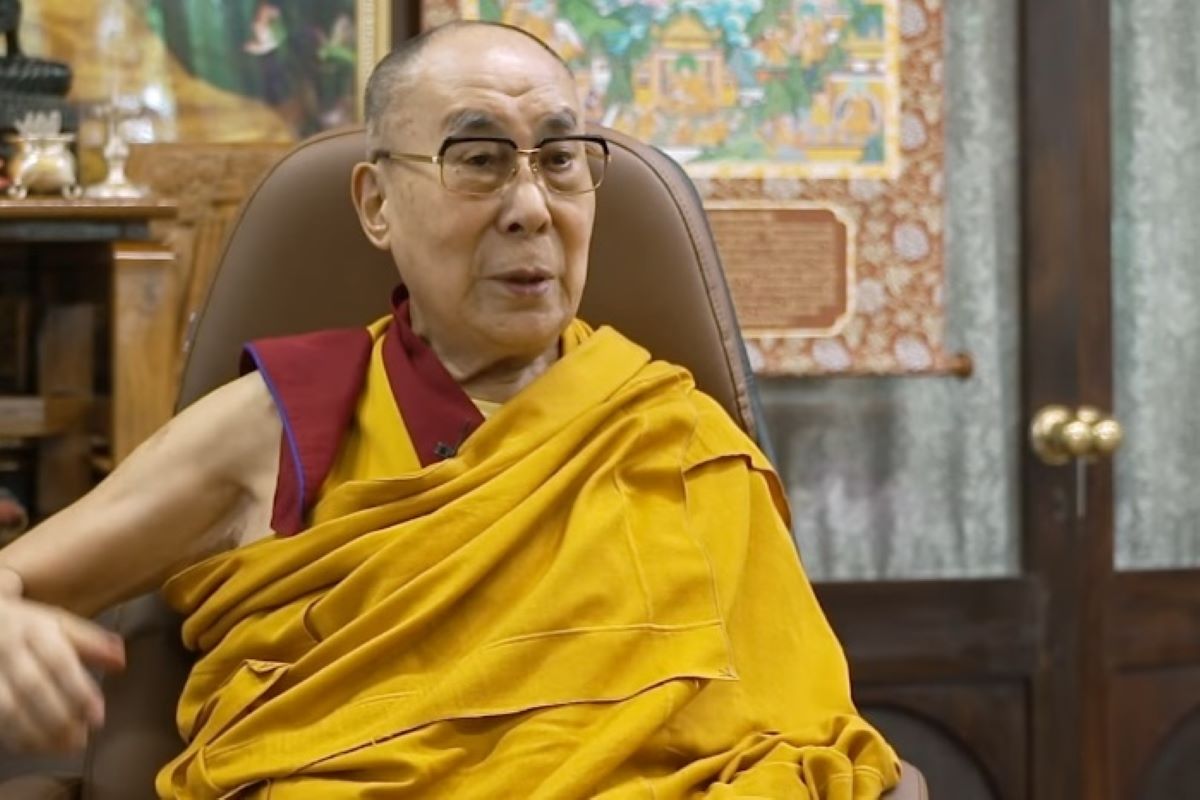Dalai Lama returns to Himachal Pradesh after knee surgery, accorded warm welcome
Tibetan spiritual leader the Dalai Lama returned to Himachal Pradesh on Wednesday after a successful knee replacement surgery in New York.
Senior advisers to the Dalai Lama, whose numbers appear in the data, include Tempa Tsering, the spiritual leader’s longtime envoy to Delhi, and the senior aides Tenzin Taklha and Chhimey Rigzen, as well as Samdhong Rinpoche

Tibetan spiritual leader Dalai Lama (IANS photo)
The phone numbers of a top ring of advisers around the Dalai Lama are believed to have been selected as those of ‘people of interest’ by the government clients of Israeli surveillance company NSO Group.
An analysis strongly indicates that the Indian government was selecting the potential targets, The Guardian said.
Senior advisers to the Dalai Lama, whose numbers appear in the data, include Tempa Tsering, the spiritual leader’s longtime envoy to Delhi, and the senior aides Tenzin Taklha and Chhimey Rigzen, as well as Samdhong Rinpoche, the head of the trust that has been tasked with overseeing the selection of the Buddhist leader’s successor, The Guardian said.
Advertisement
Other phone numbers were those of the former President of the Tibetan government-in-exile, Lobsang Sangay, the staff in the office of another Buddhist spiritual leader, the Gyalwang Karmapa, and several other activists and clerics who are part of the exiled community in India, the report said.
The selected Tibetans, however, did not make their phones available to confirm whether any hacking was attempted or successful, but technical analysis of 10 other phones on the suspected Indian client list found traces of Pegasus or signs of targeting related to the spyware.
Traces of Pegasus were found on 37 of the 67 phones in the data that were analysed by Amnesty International’s security lab.
The report said the records suggest that Tibetan leaders were first selected in late 2017, in the period before and after former US President Barack Obama met the Dalai Lama privately on a foreign tour that also included earlier stops in China.
The possible scrutiny of Tibetan spiritual and government leaders points to a growing awareness in Delhi, as well as in the western capitals, of the strategic importance of Tibet as their relationships with China have grown tenser over the past five years, the report said.
It also highlights the growing urgency of the question of who will follow the current Dalai Lama, 86, a globally acclaimed figure whose death is likely to trigger a succession crisis that is already drawing in world powers. Last year the US made it a policy to impose sanctions against any government that interfered with the selection process, The Guardian said.
But China views the next Dalai Lama as a potential separatist leader who could weaken its authoritarian grip on Tibet. It has claimed the sole right to control the selection process, and analysts say it is already pressuring neighbours such as Nepal and Mongolia to rule out recognising any successor but its own, The Guardian said.
“India wants to make sure that Tibetans don’t strike a deal with the Chinese that involves the Dalai Lama going back to Tibet,” said a former staffer with the Tibetan administration, who asked not to be named, as per the report.
It said India may also be seeking to monitor continuing informal contact between Chinese officials and Tibetan leaders. The Dalai Lama revealed two years ago that India had vetoed his plans to try to meet Xi Jinping when the Chinese president visited India in 2014.
The Guardian said Delhi officially backs the negotiations on the status of Tibet, but a recent Indian think-tank report suggested the country’s intelligence agencies had not always been supportive of the Dalai Lama’s “middle way”, a blueprint to resolve the dispute by recognising Chinese sovereignty over Tibet but granting the province meaningful autonomy.
…With IANS inputs
Advertisement